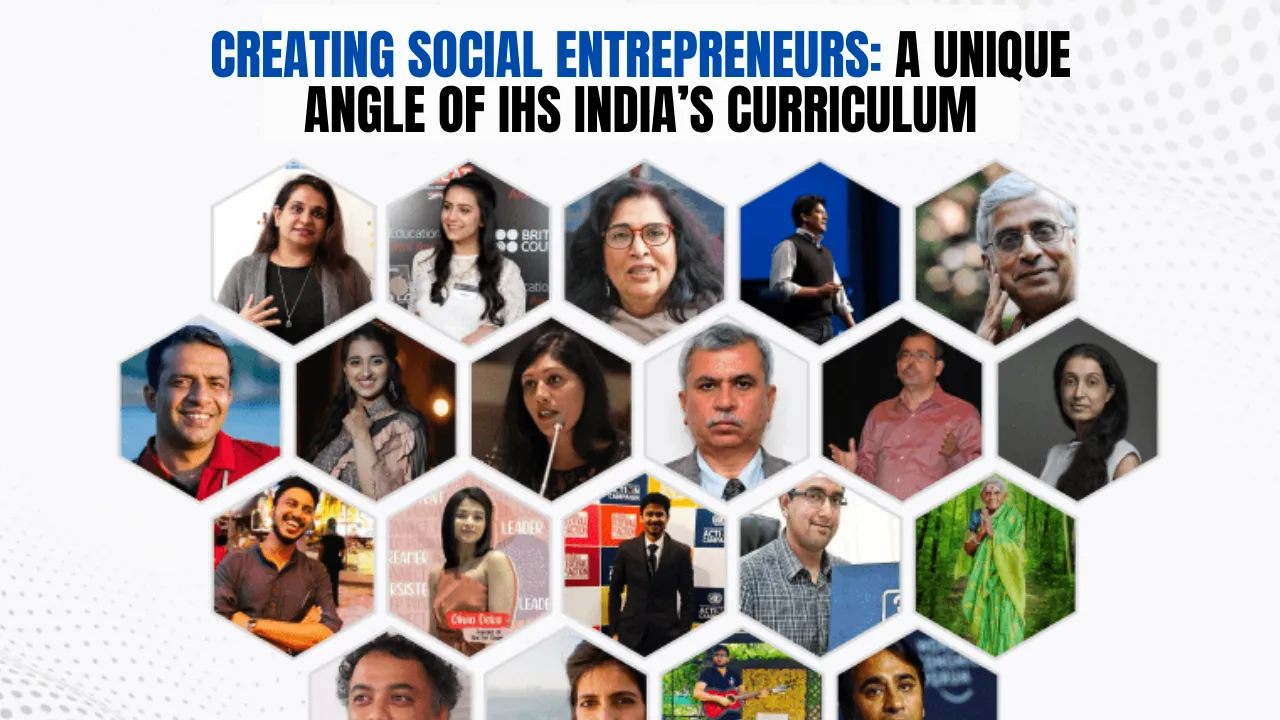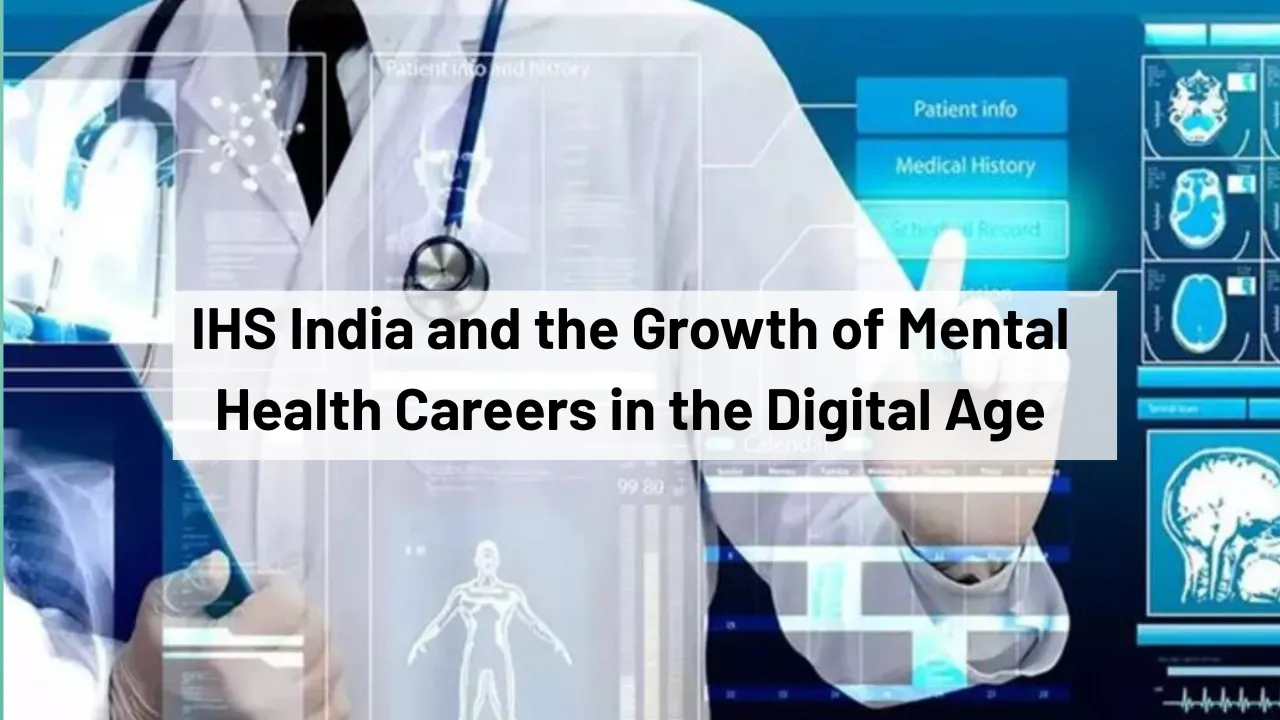Creating Social Entrepreneurs is quickly becoming a central focus for educational institutions aiming to prepare students for a rapidly changing world. In a time where global challenges demand more than technical skills, schools are shifting their priorities from traditional rote learning to value-driven, purpose-based education. IHS India is one such example, leading with a curriculum that goes beyond textbooks and exams to foster students who are socially aware, compassionate, and action-oriented.
This article explores how IHS India integrates creating social entrepreneurs into its educational framework. We’ll uncover how the school nurtures innovation, leadership, and problem-solving through hands-on experiences and community-based learning. From real-world projects to mentorship and digital tools, you’ll get a clear view of what makes IHS India’s approach not only unique but essential for the future of education.
Creating Social Entrepreneurs at IHS India
IHS India’s curriculum is built around the idea that students can be social changemakers while still in school. The goal is not only academic achievement but to give students the mindset and tools needed to solve social issues. By integrating creating social entrepreneurs into the heart of the learning process, IHS equips students with critical thinking, empathy, and the ability to design impact-driven solutions. This focus on social innovation makes the learning environment more dynamic, relevant, and inspiring for young minds.
IHS India Curriculum Overview for Social Entrepreneurship
| Feature | Description |
| Core Value | Student-led innovation with community impact |
| Learning Approach | Project-based, experiential learning |
| Key Focus Areas | Leadership skills, empathy, real-world learning |
| Support System | Mentorship, industry experts, peer collaboration |
| Technology Use | Digital tools, app design, data analysis |
| Social Impact | Hands-on community projects and outreach programs |
How IHS India Fosters Social Entrepreneurship
At the core of IHS India’s educational model is a commitment to nurturing youth changemakers. Students are not passive recipients of information; instead, they are trained to think critically, ask tough questions, and act decisively. From their early school years, students are introduced to social impact projects that challenge them to identify local problems and devise practical, scalable solutions.
This approach promotes student empowerment, showing young learners that their age is not a barrier to meaningful change. It builds resilience, fosters curiosity, and enhances their ability to navigate complex social dynamics with empathy and insight.
Curriculum Design That Builds Changemakers
The curriculum at IHS India is carefully structured to support real-world learning. Each academic year includes theme-based projects where students must work in teams to address an actual problem in their community. They research, brainstorm, develop prototypes, and present their ideas to peers, educators, and community stakeholders.
Through this process, students learn the essentials of school-based entrepreneurship: how to manage resources, communicate effectively, and pivot when needed. These experiences build confidence and introduce them to the entrepreneurial mindset in a real, applicable context—not just in theory.
Key Features That Support Social Entrepreneurship
- Real-Life Problem Solving Projects:
These are integrated into the academic calendar, encouraging students to focus on pressing local challenges. Whether it’s waste management or education inequality, students research causes and create feasible solutions with long-term potential. - Leadership and Communication Training:
Public speaking, team coordination, negotiation, and emotional intelligence are all key parts of this training. Students regularly present their ideas in structured forums, giving them the courage and clarity to lead.
Community Engagement as a Core Element
Community interaction is not a side activity at IHS—it is embedded in the academic journey. Students spend time working alongside NGOs, volunteering in local programs, and learning directly from people on the ground. This community engagement gives them exposure to different realities and encourages humility and awareness.
These experiences are essential for building a value-based education that prioritizes both personal growth and societal contribution. Students often return from such programs with new perspectives, eager to tackle deeper issues with innovative thinking.
Role of Mentorship and Support
Mentorship is one of the strongest elements in the IHS India curriculum. Students working on social innovation projects receive continuous guidance from teachers, field experts, and entrepreneurs. This mentorship not only keeps them focused but also teaches them how to refine their ideas and align them with real-world needs.
The school frequently hosts workshops and interactive sessions with guest speakers, helping students understand how other impact-driven education models work in India and globally. These interactions expand their worldviews and provide inspiration and direction for their own paths.
Use of Technology in Social Projects
Technology is not just a tool; it’s a bridge for reaching more people and amplifying impact. At IHS India, students are trained to use digital platforms to design apps, manage data, and communicate their ideas effectively. This tech-savviness plays a critical role in making their projects relevant in today’s digital age.
By integrating technology into social entrepreneurship education, students learn how to use innovation responsibly and strategically, helping them scale their impact and measure outcomes effectively.
Outcomes of the Curriculum
Students graduating from IHS India leave with much more than academic certificates. They leave with a toolkit of real-world skills, a strong sense of identity, and a desire to make a difference. Many go on to start community initiatives or continue social ventures they began in school.
Others use their experience as a launchpad into fields like public policy, environmental science, or social enterprise. This is the lasting power of creating social entrepreneurs—it sets students up not only for success but for significance.
Benefits of Creating Social Entrepreneurs Early
- Builds Responsibility and Purpose:
Early exposure to real-world issues encourages students to care deeply about social justice and community wellbeing. - Boosts Creativity and Innovation:
Tackling real problems requires thinking beyond the ordinary, developing imaginative and efficient solutions.
FAQs
What is the aim of creating social entrepreneurs in schools like IHS India?
The goal is to empower students with the mindset and tools to identify and solve real-world problems through creativity and empathy.
Are these projects part of the regular curriculum or optional activities?
They are a core part of the IHS curriculum, not extras. Every student participates in social impact projects.
How does this approach help in academic performance?
It enhances critical thinking, collaboration, and communication—skills that improve performance across subjects.
Can students actually create their own ventures while in school?
Yes. With mentorship and guidance, students often initiate small-scale social enterprises and outreach programs.
Is this model applicable only to urban schools?
Not at all. This model can be adapted for schools in various contexts, urban or rural, with support from the community and staff.
Final Thought
IHS India is showing the way forward by weaving purpose and innovation into every layer of its curriculum. In a world where problems grow more complex, education must evolve—and creating social entrepreneurs is one of the most powerful steps in that direction. IHS proves that when students are trusted, guided, and given space to grow, they can be more than learners. They can be leaders.
If you believe in education that builds character and impact, share this article and inspire others. Curious about your own potential for change? Explore your horoscope or check out more content on how you can make a difference.







